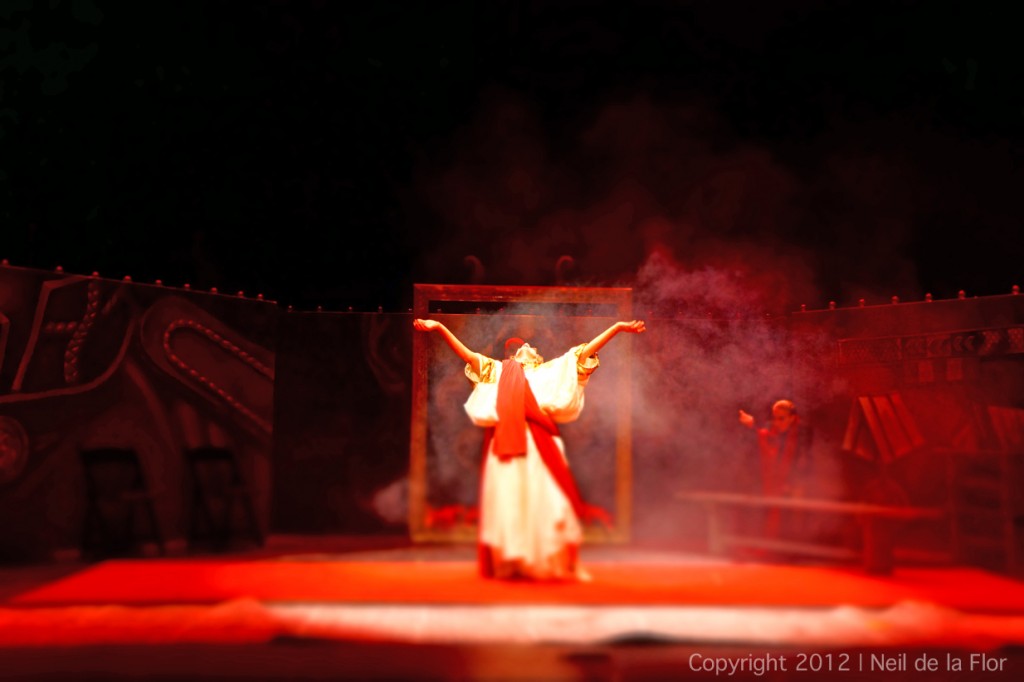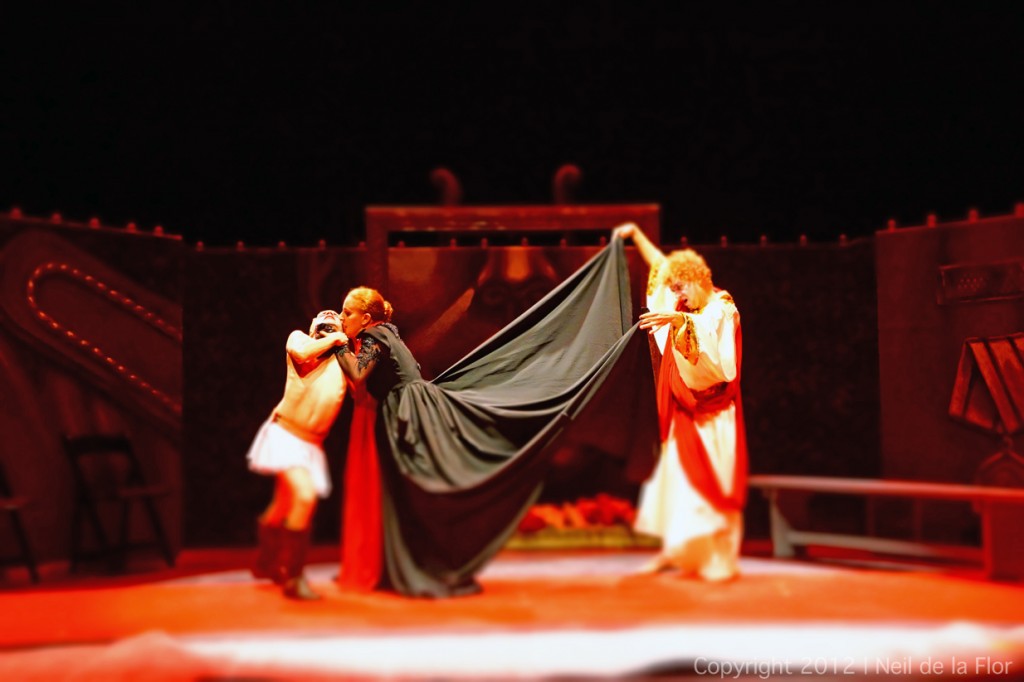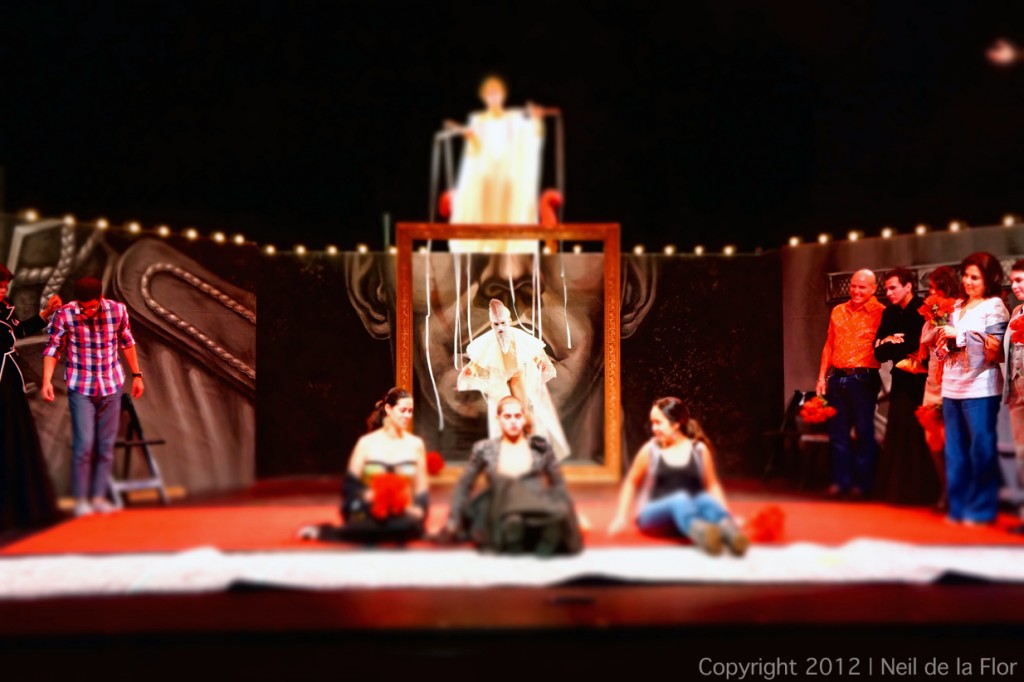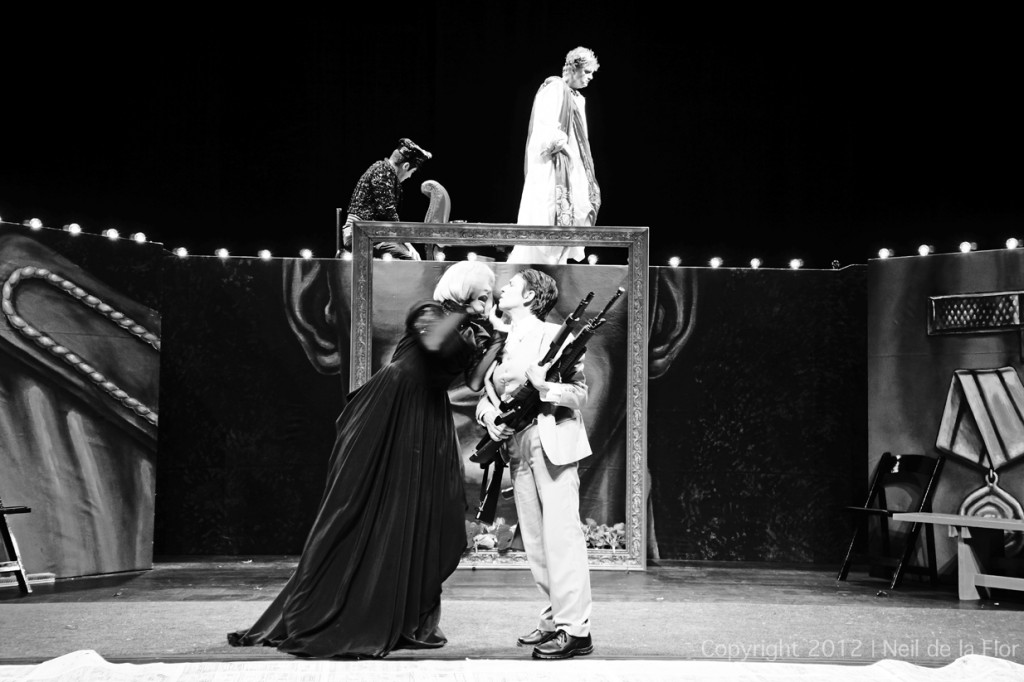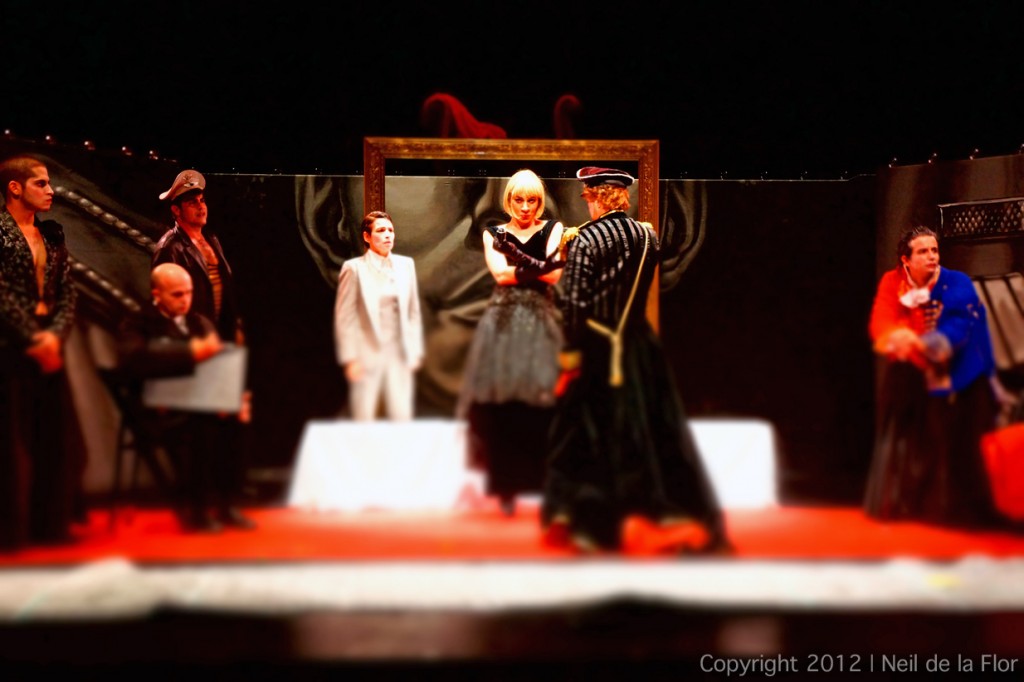
Caligula wanted the moon
…but he gave the audience a performance worth all of the stars and celestial bodies in the cosmos instead. Directed and adapted for the stage by the magical Carlos Diaz and performed by a stunningly talented and hysterical cast from Teatro el Publico in Cuba, “Caligula” was an extraordinary gender-bending stereotype-breaking theatrical performance that reinvigorated my sometimes waning love for theater.
Diaz’s “Caligula,” which was originally written by Albert Camus, remained true to Camus’ absurdist notion that humans are essentially a hot mess wreaking havoc in a chaotic and pointless universe. Caligula, exquisitely acted by Fernando Hechavarria, murders at will, desires the moon — yep, the one orbiting the Earth — demands absolute blind loyalty and, of course, expects sex from whomever he wants whenever the urge emerges.
But Caligula also teaches us something useful about love and desire: one empowers while the other destroys.
Despite Caligula’s wicked and brutish ways, Diaz created a Caligula keenly aware of love despite his brutality and psycho-sexual-emotional-intellectual-aesthetic desires for men and women. Caligula is a sort of Renaissance Brute! His lover Scipio, brilliantly acted by Broselianda Hernadez, enabled him to access the ethereal emotion of love through poetry. Despite his scrambled psyche, Scipio humanized Caligula. Made him eerily humane, at least for a moment or two, until he murdered again.
The success of “Caligula” can’t be deconstructed because all of the elements of the performance — the cast, the director, the adaptation, the costumes, the lighting and the setting — were harmoniously synthesized.
When Hechavarria opened his mouth, he was Caligula. Not an actor playing the nutcase, but the embodiment of madness and depravity.
“Caligula.” Photo by Neil de la Flor
When Cesonia, acted by Ysmercy Salomon, strutted across stage in high heels and flaunted her over-exagerated facial expressions, the audience laughed out loud.
“Caligula.” Photo by Neil de la Flor
When the court dragged audience members from the theater to bring gifts to Caligula, the notion of us and them dissipated.
“Caligula.” Photo by Neil de la Flor
When nothing good can seemingly come out of Caligula’s lewd, lascivious, sex crazed and depraved world, the audience found glimpses of pure love through unlikely affairs between absurdly flawed characters.
“Caligula.” Photo by Neil de la Flor
Caligula personified desire and reminded us of the little caligulas that live in us. He reminded the audience (or maybe just me) to face them with high-beams on because that’s where danger lives. In the dark. In silence. Keep your enemies close, they say, but keep your desires even closer.
The community should also keep FUNDarte and Executive Director Ever Chavez close. Their commitment to bring “Caligula” and Teatro el Publico to Miami for the “Out in the Tropics Festival” demonstrated the impact theater can and should have on our daily lives. The Colony was packed. The audience was engaged. I didn’t even bother to look at the English subtitles projected above the stage because I understood what words can’t ever fully express. When the show ended, I leapt to my feet without hesitation. I didn’t care if I was the first person to stand up. The shouts, hoots and hollers of “bravo!” and “encore!” coming from behind me confirmed that I wasn’t. (It appeared that actress Broselianda Hernandez teared up at the audience’s incessant applause as the curtain closed.) Good theater makes people move. Great theater makes them cry out for more.
Recent Content
-
Artsarticle ·
-
Artsarticle ·
-
Artsarticle ·
